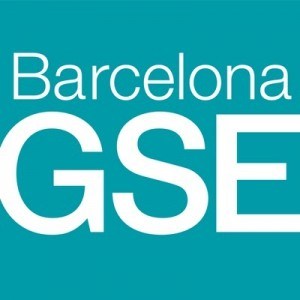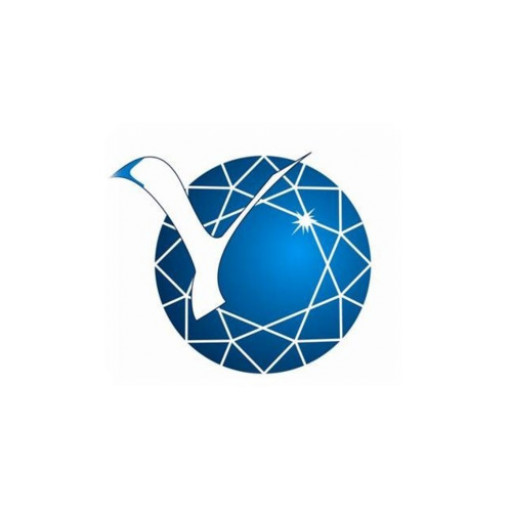Photos of university / #uva_amsterdam
The Research Master's in Economics at the University of Amsterdam is an intensive, internationally oriented two-year programme designed for students who wish to delve deeply into economic theory and empirical research. This programme offers a rigorous curriculum that combines advanced coursework in microeconomics, macroeconomics, and econometrics with specialized seminars and research projects. Students are encouraged to develop strong analytical and quantitative skills, preparing them for careers in academia, research institutions, policy analysis, and the private sector. The programme emphasizes a research-driven approach, providing students with the opportunity to work closely with experienced faculty members who are renowned experts in their fields. Throughout the programme, students engage in original research, participate in seminars and workshops, and have access to a vibrant academic community that fosters critical thinking and innovation. The curriculum is designed to be flexible, allowing students to tailor their studies according to their interests, whether in development economics, behavioral economics, financial economics, or environmental economics. Furthermore, students are equipped with the necessary tools and methodologies to pursue a PhD in Economics or related disciplines. The University of Amsterdam's strong ties with research institutes and the economics community offer valuable networking and career opportunities. Graduates of the Research Master's in Economics are well-prepared to contribute to academic research, policy-making, or to continue their studies at the doctoral level. The programme is part of the Amsterdam Graduate School of Economics, which promotes a dynamic learning environment and encourages collaboration across disciplines. Overall, this Master's programme provides a comprehensive foundation in economic research, equipping students with the theoretical knowledge, practical skills, and research experience needed to excel in competitive environments.
The Master's in Economics (Research) at the University of Amsterdam is a comprehensive program designed for students who aspire to become leading economists and researchers in the field. This program provides an in-depth understanding of economic theory, advanced quantitative methods, and empirical research techniques. Throughout the course, students engage with a wide range of topics including microeconomics, macroeconomics, international economics, development economics, and behavioral economics, enabling them to analyze complex economic phenomena from multiple perspectives.
The curriculum emphasizes rigorous training in econometrics and data analysis, equipping students with the skills necessary to interpret large datasets and develop innovative research strategies. Students are encouraged to apply these skills to real-world problems, often collaborating with faculty on cutting-edge research projects. The program combines theoretical foundations with practical applications, fostering critical thinking and problem-solving abilities that are essential for academic, governmental, or private sector careers.
Lectures, seminars, and workshops are delivered by distinguished faculty members who are actively involved in pioneering research across various economic disciplines. The program also offers opportunities for students to present their research, participate in conferences, and publish their findings, preparing them for PhD studies or high-level positions in policy analysis, consulting, and economic research institutions.
In addition to the core curriculum, students can tailor their educational experience by choosing electives aligned with their specific interests, such as environmental economics, health economics, or labor economics. The program encourages international perspectives and collaborative learning, with opportunities to engage in internships, exchange programs, and joint research initiatives with global institutions. Graduates of the Master's in Economics (Research) at the University of Amsterdam are well-equipped to contribute innovative solutions to economic challenges and to pursue doctoral studies, making a meaningful impact in both academia and industry worldwide.
Program requirements for the MSc in Economics (Research) at the University of Amsterdam include a relevant undergraduate degree in Economics or a closely related discipline with a strong academic record. Applicants should demonstrate proficiency in microeconomics, macroeconomics, and econometrics, which are essential foundational skills for graduate-level research. A minimum GPA equivalent to a 2:1 honours degree in the Dutch system or international equivalents is typically required. Additionally, applicants are expected to submit proof of proficiency in English, such as TOEFL or IELTS scores, unless their previous education was conducted in English. Prior research experience or a demonstrated interest in empirical or theoretical research can strengthen an application. The application package must include a completed application form, a curriculum vitae, a statement of purpose outlining research interests and career goals, academic transcripts, proof of language proficiency, and letters of recommendation from academic referees familiar with the applicant's research potential and academic abilities. Some selective criteria may include an interview or research proposal, especially for applicants with less direct research experience. Admitted students should be prepared to engage in intensive coursework focusing on advanced microeconomic and macroeconomic theories, quantitative methods, and specialized research seminars. The program fosters independent research competencies, critical thinking, and the ability to contribute original insights within the field of economics. Overall, the program seeks candidates with a strong academic background, research motivation, and analytical skills suitable for a research-oriented master's degree.
The MSc in Economics (Research) at the University of Amsterdam offers diverse financing options to support students throughout their studies. The primary source of funding for many students comes from government grants and loans, such as the Dutch student loans system, which provides applicable Dutch residents and EU/EEA students with financial support during their studies. These grants are often supplemented by personal savings and family support, allowing students to finance tuition fees and living expenses effectively. International students are encouraged to explore scholarships and tuition fee waivers available through the university or external organizations, which can significantly reduce the financial burden. The University of Amsterdam also participates in the Holland Scholarship program, which offers funding to talented students from outside the EU/EEA, and the Amsterdam Excellence Scholarship, aimed at outstanding international students. Furthermore, students are advised to seek external funding opportunities such as Erasmus+ grants for European mobility and exchange programs, which can provide additional financial assistance. Many students also consider part-time work opportunities within Amsterdam, including on-campus jobs, internships, and tutoring, to supplement their income during their studies. The university provides resources and guidance on financial planning, including access to financial aid offices and workshops on budgeting and scholarship applications. Some students may also receive sponsorship from their home country governments or private organizations aimed at supporting students pursuing higher education abroad. In terms of tuition fees, the costs for the MSc program are published annually and vary depending on the student’s nationality, but on average, they are fixed and payable per academic year. The university emphasizes transparent and accessible information regarding the total cost of attendance, including tuition, insurance, accommodation, and study materials. Overall, financing an MSc in Economics (Research) at the University of Amsterdam involves a combination of personal resources, government funding, scholarships, and work opportunities, allowing students from diverse backgrounds to pursue their academic goals effectively.
The Master's programme in Economics (Research) at the University of Amsterdam offers a comprehensive and rigorous education designed for students interested in pursuing a career in academic research, policy analysis, or specialized roles within the private and public sectors. The programme is tailored to equip students with advanced analytical skills, a deep understanding of economic theories, and the empirical methods necessary to investigate complex economic issues. Students engage with a variety of modules that cover microeconomics, macroeconomics, and econometrics, all delivered by faculty members who are recognized experts in their field.
The curriculum emphasizes critical thinking, quantitative analysis, and independent research, preparing students to contribute original insights to the field of economics. Throughout the programme, students are encouraged to develop their own research interests, culminating in a master's thesis that addresses a substantial economic research question. The programme also offers opportunities for engagement with current economic challenges through seminars, workshops, and collaborations with research institutes affiliated with the university.
The University of Amsterdam's infrastructure provides access to extensive databases, research tools, and collaborative networks, fostering a stimulating academic environment. The programme's multidisciplinary perspective ensures students can analyze economic issues from various angles, including behavioral, ecological, and institutional perspectives. This approach enhances the ability of graduates to address real-world problems and generate impactful solutions.
The master’s in Economics (Research) is designed for students who aim to continue their academic journey, potentially pursuing a PhD, or entering research-intensive roles in research institutes, consultancy firms, or government agencies. Graduates emerge with strong quantitative skills, a solid theoretical foundation, and practical research experience. The programme's strong emphasis on empirical research methods and economic modeling prepares students to contribute to scholarly discourse, policy formulation, and economic development initiatives.
The university maintains strong ties with national and international research communities, offering students opportunities to participate in conferences, publish research, and network with prominent economists. The relatively small class sizes facilitate personalized mentorship and close collaboration with faculty. Overall, the programme prepares graduates to be innovative, analytical, and socially responsible economists capable of tackling the economic issues of the future.









